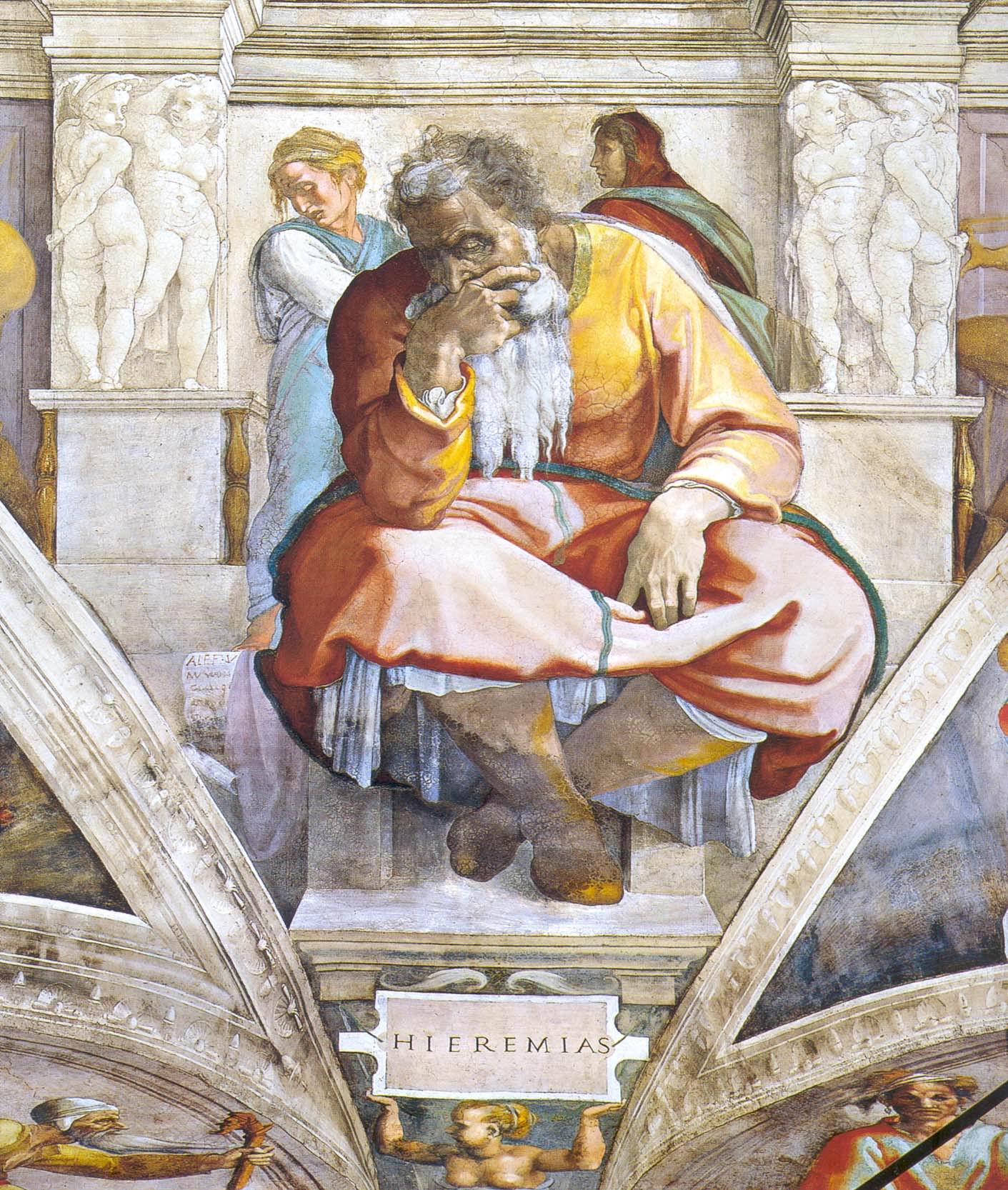The Reverend Luther Zeigler
September 27, 2015
For those of you who were with us at dinner last Sunday evening, you know that Olivia led us in a brief conversation about the recent conference she, Laura and I attended in Minneapolis last weekend, a 2-day conference entitled “Why Christian?” that was organized by Nadia Bolz-Weber and Rachel Held Evans. I confess that I have continued to be affected by what I experienced that weekend, and as I have prayed on our gospel lesson this week, I have heard echoes from the conference in Jesus’ teaching. I’ll explain that in a bit, but first, for those of you who don’t know what I’m talking about, let me give you some context about the conference.
Nadia and Rachel are two of the more interesting voices in the Church out there these days, although they are on the surface an unlikely pair to be working together. Nadia is a former stand-up comic and a recovering alcoholic turned Lutheran pastor, whose colorful array of sleeve tattoos is the first thing that most people notice about her. Physically imposing at 6 foot 1, Nadia likes wearing leather and has the mouth of a trucker. Rachel, on the other hand, could have stepped out of a Norman Rockwell painting: sweet, polite, and wholesome-looking. She comes from a conservative evangelical background, but more recently has found her way into the Episcopal church, and writes about the Christian life with a light and graceful touch. While these differences between Nadia and Rachel are quite real, what we learned at the conference is that their identities as fellow followers of Jesus run deeper. What they share more than anything is a passion for the good news of Jesus Christ and a conviction that some of the traditional ways we have done church in this country are not always serving that good news very well and not reaching the people we need to be reaching.
And so, Nadia and Rachel had the idea that it might be fruitful and interesting to disregard denominational niceties and the ordinary business of our respective churches and instead invite a dozen or so other women from across the country and from diverse backgrounds to share their stories around the simple question: why Christian? Why, as Nadia and Rachel frame the question, in the wake of centuries of corruption, hypocrisy, crusades, televangelists, and puppet ministries do we continue to follow Jesus?
What emerged from the conference was not a 10-step plan for how to grow our churches or a symposium on community organizing or a referendum on this or that social justice initiative. Rather what we experienced were brutally honest, flesh-and-blood stories of how the Gospel of Jesus has entered into the lives of these women in unexpected and extraordinary ways, such that they are themselves now vibrant voices for how the good news can continue to bring life to broken people and a troubled world despite the Church’s best efforts.
I have been to many conferences in my life, and I can honestly tell you I have never been part of a gathering that was quite so alive with the Spirit. And over the past week, as I have been processing the experience, I have tried to sort out just what it was that made this conference different. It is tempting, of course, to say that it is because women organized and led this conference. As we know, the Church has a long and unfortunate history of silencing women’s voices, and there is no question, I think, that one thing the Church needs to continue to do is to empower women to speak and lead so that we might learn from the richness of their lives. But I’m not persuaded that the difference here was really about gender per se. Rather, I think what made these testimonies uniquely powerful was the shared experience out of which these voices came: experiences of being disempowered, of being pushed to the periphery, of being abused, of being told by the church and other cultural authorities that the only way to be accepted is to conform to a certain way of being a woman, or a person of color, or a person with a nontraditional sexual identity.
And yet, these testimonies were not filled with anger, or bitterness, or cynicism, as they easily could have been; nor, were they mere pretexts for some thinly veiled political agenda. Rather, the focus of these women’s reflections remained constructively centered around the question “so what do we the people of God have to learn from these experiences of disempowerment and how has Christ kept us sane and whole and breathing notwithstanding what we have experienced?” That was what was amazing about their stories.
Dietrich Bonhoeffer (whom, you may have noticed, I never tire of quoting) once said that to be a follower of Jesus is to assume “the view from below.” We must, Bonhoeffer wrote, see and feel things from the perspective of those at the wrong end of power, not so much to avenge their plight, but rather so that we might try, with God’s help, to restore their humanity when they are at most risk of losing it. At our conference, Nadia and Rachel led their choir of women’s voices in singing just this song.
Today’s gospel lesson from Mark is all about the risks of abusing the power God has given us, and disabling others from living into the abundant life God desires for all. We are at the end of chapter 9. Most close readers of Mark will tell you that the decisive turning point in Mark’s gospel is Peter’s confession that Jesus is indeed the Christ at the end of chapter 8, and the subsequent transfiguration of Jesus on the mountaintop witnessed by Peter, James and John that opens chapter 9. After these pivotal events, the central question that drives Mark’s narrative shifts from “who is this man Jesus?” – who we now know to be God’s son – to the more challenging question: “so, what does it mean to follow Jesus?”
And, over the past few weeks we have heard the beginning of Jesus’ answer to that question. Jesus shares with the disciples that his destiny lies in Jerusalem and will involve suffering and death. His future is the Cross, he tells them, and their own role is to share that destiny – to pick up their own cross and to deny themselves for the sake of the gospel and for others. He tells them that if anyone would be first, they must be last and servant of all.
Uncomprehending and afraid, the disciples either refuse to accept this news or fail to understand it. Instead, they pretend that the future will be otherwise, that Jesus will somehow achieve his glory, and they wonder among themselves how they will celebrate this victory and who will end up with the choicest position in Jesus’ new Kingdom. And so, last week, we overheard the disciples arguing among themselves about who is the greatest.
This week, we have another variation on this same theme. The disciples have apparently been out and about flexing their muscles as Jesus’ true followers when they come across another person healing in Jesus’ name. Obviously miffed that someone else would dare to usurp their appointed role, John runs up to Jesus and announces: “’Teacher, we saw someone casting out demons in your name, but we stopped him, because he wasn’t following us.’” He wasn’t following us.
Presumably John expects Jesus to be pleased with his ability to police the good followers from the pretenders, but he’s wrong. Jesus corrects him: “Do not stop him,” Jesus says. Anyone who heals, anyone who does good, in my name is not against us but for us, Jesus reminds them.
Power is such a dangerous thing, isn’t it? We clamor for power, convinced that the world will be a better place if only we had more of it, and then as soon as we do, we inevitably use it to advance our own interests and marginalize others. We do it in politics, in business, in families, and yes, in the church. We use power to get ahead, inevitably leaving others behind, often throwing stumbling blocks in their way.
Which is why, I think, Jesus gets so mad at the end of our lesson today. “If any of you put a stumbling block before one of these who believe in me, it would be better for you if a great millstone were hung around your neck and you were thrown in the sea.” Jesus’ hellfire and brimstone speech about mischievous hands, and feet, and eyes, is not an admonition against certain forms of sexual behavior, as it has often been so grotesquely misinterpreted, but rather, as the context makes clear, this is an admonition against abusing power to promote one’s self while disabling others.
The problem, I hasten to add, is not power itself. Jesus, after all, had power; and he confers power upon his disciples; indeed, he gives them the power to change the world. Its just that, as Jesus teaches time and again, the secret to power, its paradoxical key, is that it is best exercised by letting it go, giving it up, and sharing it with others.
This is not to say that the Christian life is about powerlessness and suffering for their own sakes. A lot of harmful nonsense has been said across the generations about “redemptive suffering” by people in power who seek to retain their privilege by persuading those who don’t have power that they should look for the blessing in their lot. Whites have done it to people of color, men to women, “upper classes” to “lower classes.” Jesus’ invitation to take up our cross and deny ourselves is not this. Indeed, if anything, it is the inverse of this: To share in the paradox of Jesus’ power is to suffer for and on behalf of others, when such suffering is required to oppose injustice, to protect the vulnerable, to defend the innocent, to heal the sick, or just to shoulder the pain of another as an act of solidarity and mercy.
One of the reasons most of us have been so moved and captivated by Pope Francis’ visit to America this past week, I suspect, is because we see in him just such a Christ-like concern for those on the wrong end of power – whether it is his decision to eat with Washington’s homeless rather than its leaders or to stop his motorcade to kiss a child with cerebral palsy or to congratulate the workers who restored St. Patrick’s.
So, to return to last week’s conference with Nadia and Rachel: I guess what I have taken away from listening to these women’s stories is that I have a lot to learn about the faith from those who have lived it in the face of being told they are not welcome or worthy. These are voices that need to be heard, not only for their sake but for ours too.
Amen.







